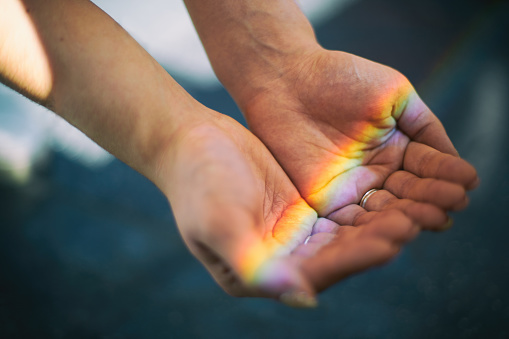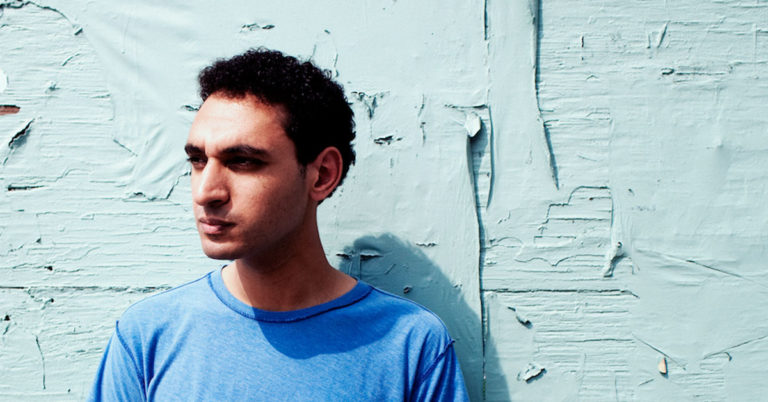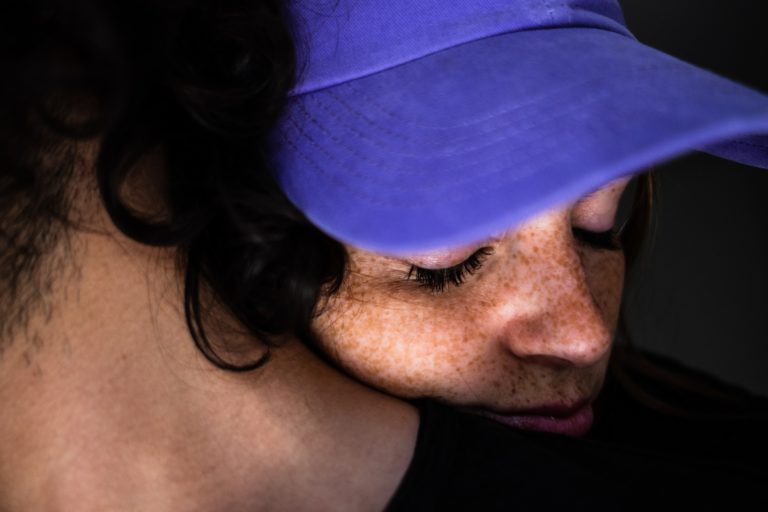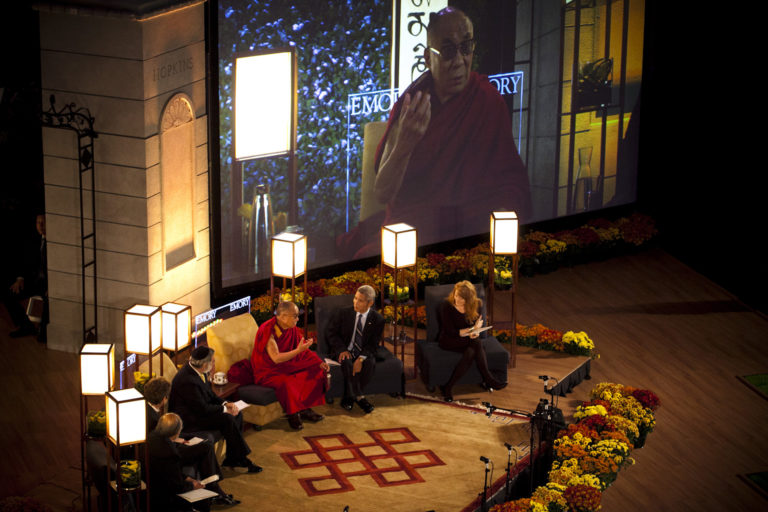We’re hungry for fresh ways to tell hard truths and redemptive stories, for language that would elevate and embolden rather than demean and alienate. Elizabeth Alexander shares her sense of what poetry works in us — and in our children — and why it may become more relevant, not less so, in hard and complicated times.
Podcasts
View
- List View
- Standard View
- Grid View
887 Results
Rami Nashashibi uses graffiti, calligraphy, and hip-hop in his work as a healing force on the South Side of Chicago. A Palestinian-American, he started his activism with at-risk urban Muslim families, especially youth, while he was still a college student. Now he’s the leader of a globally-emulated project converging religious virtues, the arts, and social action. And he is a fascinating face of a Muslim-American dream flourishing against the odds in post-9/11 America.
She became a national figure as the face of the “Nuns on the Bus.” Sr. Simone Campbell is a lawyer, lobbyist, poet, and Zen contemplative working on issues such as “mending the wealth gap,” “enacting a living wage,” and “crafting a faithful budget that benefits the 100%.” She is a helpful voice for longings so many of us share, across differences, about how to engage with the well-being of our neighbors in this complicated age.
It is a story of our time — the new landscape of living longer, and of dying more slowly too. Jane Gross has explored this as a daughter and as a journalist, and as creator of the New York Times’ “New Old Age” blog. She has grounded advice and practical wisdom about caring for our loved ones and ourselves on the far shore of aging.
He’s been called a post-millennial Schubert. Mohammed Fairouz has composed four symphonies and an opera while still in his 20s. He invokes John F. Kennedy and Anwar Sadat, Seamus Heaney and Yehuda Amichai in his compositions. He sees “illustrious language” as a form of music — and as a way, just maybe, to shift the world on its axis.
April 16, 2015
David Blankenhorn + Jonathan Rauch
The Future of Marriage
What would it take to make our national encounter with gay marriage redemptive rather than divisive? David Blankenhorn and Jonathan Rauch came to the gay marriage debate from very different directions — but with a shared concern about the institution of marriage. Now, they’re pursuing a different way for all of us to grapple with the future of marriage, redefined. They model a fresh way forward as the subject of same-sex marriage is before the Supreme Court.
From the moment of his diagnosis with ALS, Bruce Kramer began writing — openly, deeply, and spiritually — about his struggle, as he puts it, to live while dying. He died on March 23, 2015, while we were in production on this show. His words hold abiding joy and beauty, and reveal an unexpected view opened by this disease.
Alzheimer’s disease has been described as “the great unlearning.” But what does it reveal about the nature of human identity? What remains when memory unravels? Alan Dienstag is a psychologist who has led support groups with early Alzheimer’s patients, as well as a writing group he co-designed with the novelist Don DeLillo. He’s experienced the early stages of Alzheimer’s as a time for giving memories away rather than losing them.
For several hundred years, much of scientific advance has been about exploring human beings, including their actions and choices, in terms of mechanism — our bodies, our brains, physical processes. Research psychologist Michael McCullough believes that understanding our minds as mechanistic creates moral possibility. He’s led groundbreaking studies on the evolution and cultivation of moral behaviors such as forgiveness and gratitude. Arthur Zajonc is a physicist and contemplative, who believes that the farthest frontiers of science are bringing us back to a radical reorientation towards life and the foundations for our moral life.
Eve Ensler has helped women all over the world tell the stories of their lives through the stories of their bodies. Her play, “The Vagina Monologues,” has become a global force in the face of violence against women and girls. But she herself also had a violent childhood. And it turns out that she, like so many Western women, was obsessed by her body and yet not inhabiting it without even knowing she wasn’t inhabiting her body — until she got cancer.
Wisdom for how we can move and heal our society in our time as the Civil Rights Movement galvanized its own. Lucas Johnson is bringing the art and practice of nonviolence into a new century, for new generations. Gwendolyn Zoharah Simmons was an original Black Power feminist and a grassroots leader of the Mississippi Freedom Summer.
Courage is born out of vulnerability, not strength. This finding of Brené Brown’s research on shame and “wholeheartedness” shook the perfectionist ground beneath her own feet. And now it’s inspiring millions to reconsider the way they live, parent, and navigate relations with members of the opposite gender.
In a probing and personal conversation, Reza Aslan opens a refreshing window on religion in the world and Islam in particular. It’s a longer view of history and humanity than news cycles invite — certainly when it comes to the Arab Spring, or to ISIS. His life is a kind of prism on the fluid story of religion in this century. But in a globalized world, we all have a personal stake in how this story unfolds.
Computer scientist Bernard Chazelle has an original take on what music works in us — especially the music of Johann Sebastian Bach. Just as mathematicians talk about discovering rather than inventing great equations, so, he says, Bach set out to “discover” the musical rules behind the universe. After hearing this conversation, you may never listen to any piece of music — whether Bach or Jay-Z — in quite the same way again.
October 23, 2014
Nadia Bolz-Weber
Seeing the Underside and Seeing God: Tattoos, Tradition, and Grace
She’s the tattooed, Lutheran pastor of the House for All Sinners and Saints in Denver, a church where a chocolate fountain, a blessing of the bicycles, and serious liturgy come together. She’s a face of the Emerging Church — redefining what church is, with deep reverence for tradition.
For over a decade, the French-American anthropologist Scott Atran has been listening to the hopes and dreams of young people from Indonesia to Egypt. He explores the human dynamics of what we analyze as “breeding grounds for terrorism” — why some young people become susceptible to them and others, in the same circumstances, do not. His work sheds helpful light on the question on so many of our minds as we watch horrific news of the day: How could this happen — and how could we possibly help transform it?
If journalism is a primary way we tell the story of ourselves and our time, Michel Martin is a person helping us tell that story — and take part in it — more completely. Her daily NPR program Tell Me More was often labeled as “diversity” or “minority” programming. But in fact, she and her journalism are about a more generous and realistic sweep of who we are now — and how we’re creating our life together anew. At the Chautauqua Institution, we mine her wisdom on the emerging fabric of human identity.
The third in a four-part series, “The American Consciousness.”
September 25, 2014
His Holiness the 14th Dalai Lama of Tibet, Jonathan Sacks, Katharine Jefferts Schori, and Seyyed Hossein Nasr
Pursuing Happiness
The XIV Dalai Lama seems to many to embody happiness — happiness against the odds, a virtue that is acquired and practiced. Before a live audience in Atlanta, Georgia, Krista had a rare opportunity to mull over the meaning of happiness in contemporary life with him and three global spiritual leaders: a Muslim scholar, a chief rabbi, and a presiding bishop. An invigorating and unpredictable discussion exploring the themes of suffering, beauty, and the nature of the body.
The Pause
Join our constellation of listening and living.
The Pause is our seasonal Saturday morning ritual of a newsletter. Replenishment and invigoration in your inbox. Wisdom to take into your week. And when you sign up, you’ll receive ongoing, advance invitations and news on all things On Being.
Search results for “”
View
- List View
- Standard View
- Grid View
Filters





